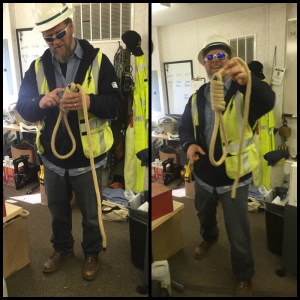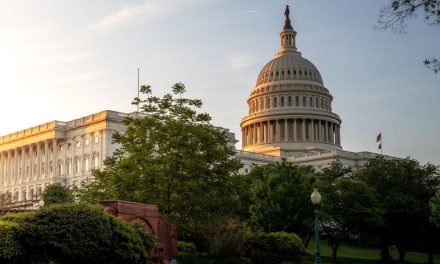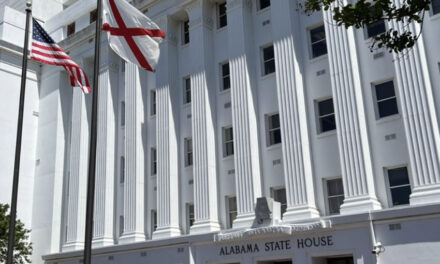By Megan Sayles,
AFRO Business Writer,
msaylesafro.com
and Tashi McQueen,
AFRO Political Writer,
tmcqueenafro.com
The Baltimore City Council’s Legislative Investigations Committee held a public hearing on Feb. 23 to discuss control and maintenance of the city’s underground conduit system and a recent deal with Baltimore Gas and Electric (BGE).
Council members Eric T. Costello, Sharon Green Middleton, Isaac “Yitzy Schleifer, Robert Stokes Sr. and Danielle N. McCray presided over the meeting, which came after a Feb. 15 session where an agreement was made between BGE and Mayor Brandon Scott, the acting city solicitor and public works director.
Currently, the city of Baltimore owns and pays to maintain its 741-mile conduit system, which contains electric, telephone and fiber optic cables. In 2022, Baltimore voters passed a charter amendment barring the city from selling its conduit system.
If the deal made in the Feb. 15 meeting with BGE is approved, the utility company will take over operation of the conduit system, but several city officials, including City Council President Nick Mosby and organizations like the NAACP, have expressed concern over the lack of transparency regarding the deal and the company’s allegations of racial discrimination.
“We acknowledge that most negotiations are private, but when this negotiation spilled out and became public, the administration should have made sure the public and the members of the City Council were fully briefed,” said Kobi Little, president of the Baltimore City NAACP. “There’s no strong enforcement component regarding contract terms, nor are there any strong enforcement components related to racial justice and equity.”
The Baltimore branch of the NAACP wants the city to conduct an equity and diversity assessment of the deal and the company.
They also called for BGE to invest in Baltimore, using the NAACP’s proposed assessment to “root out and stop the protection of White supremacy” in their business practices.
A representative of City Council President Nick Mosby and Baltimore City Comptroller Bill Henry commented on the contract.
“They did not attend the Feb.16 meeting because they were told their request to have BGE’s proposed agreement removed from the agenda and then placed on an agenda in the near future was denied,” said Monica Lewis, a spokesperson for Henry and Mosby. “Comptroller Henry, Council President Mosby and the city council members would like additional time to review this proposed agreement. There remain questions about the $50,000 contract for a consultant being no longer necessary, even though it was described as necessary before.”
The deal has also met pushback from local civil rights agencies. An ongoing lawsuit, filed by former employees against BGE in April 2022, alleges that the utility company perpetuates a deep-seated culture of racism –despite claims that diversity, equity and inclusion are core values of the company.
In the complaint, seven plaintiffs alleged that BGE, which is owned by the Exelon Corporation, tolerates discrimination against African-American employees and ostracizes and scrutinizes Black workers who challenge racist behaviors.
The plaintiffs say they were wrongfully terminated and that on several occasions, a BGE instructor taught trainees how to tie nooses and discussed nooses’ history in the lynching of African Americans.
One of the plaintiffs photographed the demonstration.
“They know everything that my clients have alleged and that I have alleged on their behalf is true, and we have receipts to prove it. The picture that we have now gotten out there shows a BGE trainer brandishing a noose and posing,” said Tonya Baña, who represents the former BGE workers.
“That is behavior that they have been aware of for years, and they’ve continued to pretend that there was a single incident that happened in 2015. That picture is from 2015, but the fact that that man was tying nooses was reported in 2007.”
She added: “They did an investigation in 2018 and substantiated that this trainer conducted a noose-tying demonstration and that trainees under his direction tied nooses, but the fact remains that they didn’t fire that trainer until December of 2020 when the pictures became public.”
Baña also said that BGE is blocking the right of current employees to support their former coworkers and the lawsuit.
When the AFRO reached out to BGE, a representative asked to hear the questions, but declined to directly respond, instead sharing a prepared statement that has served as a canned response to all media organizations.
“BGE condemns hatred, discrimination, and violence and is committed to building a more diverse, equitable, safe, and inclusive culture,” said the statement from BGE. “This situation has been raised now by an opportunistic attorney who is bringing up matters from seven years ago that should properly be addressed in the court of law. We continue to condemn racism and other actions that could create a hostile workplace. ”
Little made known his concern about the complaints raised by Black BGE workers.
“We are alarmed by the legal complaints,” said Little. “We have heard from members of our branch who were subjected to racial hostility at BGE and we expect BGE to– instead of claiming this is an opportunistic effort by an attorney– respond to the NAACP’s articulation of the issues.”
“There are several legal complaints against BGE and apparently the city wasn’t aware of it,” said Little.
If you have experienced a racially hostile work environment at BGE or any Baltimore workplace, contact naacpbaltimore@gmail.com and share your story.
Megan Sayles and Tashi McQueen are Report For America Corps Members.
The post Baltimore Gas and Electric conduit deal brings calls for transparency and lawsuit by former Black workers to forefront appeared first on AFRO American Newspapers .











